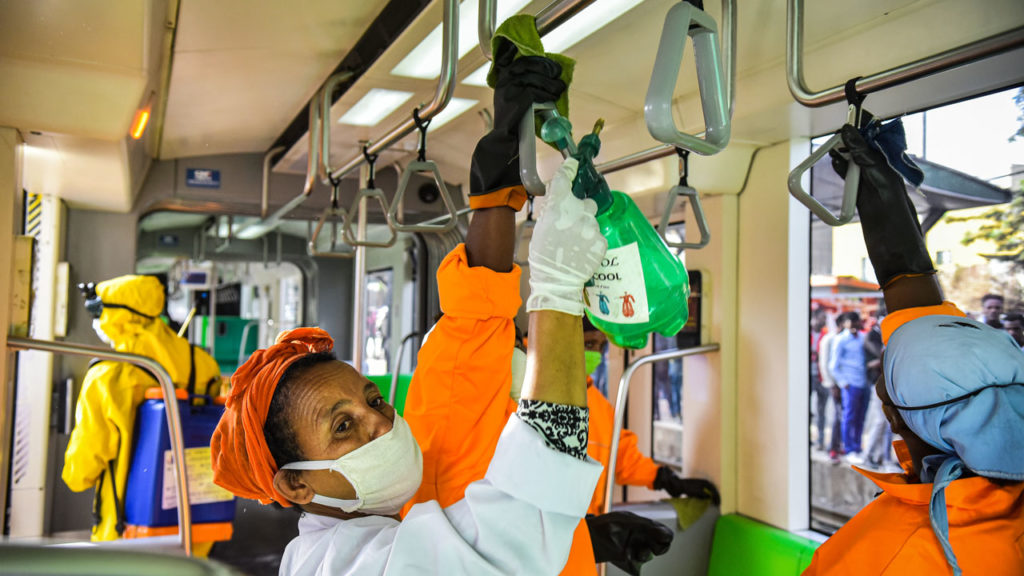The pandemic “poses an existential threat to the economies of African countries,” Abiy’s office said in a statement, adding that Ethiopia was “working closely with other African countries” in preparing the aid request.
The heavy debt burdens of many African countries leave them ill-equipped to respond to pandemic-related economic shocks, as the cost of servicing the debt exceeds many countries’ health budgets, the statement said.
“Just as the virus knows no borders, our responses should also know no borders,” it said.
Saudi Arabia, which currently presides over the G20, last week called for a “virtual” summit to coordinate an international response to the coronavirus crisis.
French President Emmanuel Macron’s office said Monday that he had spoken by telephone with Chinese counterpart Xi Jinping and that the two leaders agreed on the need for emergency talks.
After lagging behind the global curve for coronavirus infections and deaths, Africa has seen a rise in cases in recent days.
As of Monday night, there were 1,654 reported cases across 43 African countries resulting in 52 deaths, according to the Africa Centres for Disease Control and Prevention.
Experts warn that the coronavirus could quickly overwhelm weak African health systems.
African economies will also be vulnerable in the face of “a dramatic decline in exports, disruption of global chains, and the sudden drying up of travel and tourism,” Abiy’s statement said.
The proposed $150-billion (138-billion-euro) aid package could include budgetary support from the World Bank and crisis financing from the International Monetary Fund, the statement said.
To alleviate African debt burdens, Abiy proposed that interest payments on government loans “should be written off” and that “part of the debt of low-income countries should be written off.”
The IMF reported last year that seven African countries were in debt distress and that nine, including Ethiopia, were “at high risk of debt distress.”
Abiy’s proposal comes one day after African finance ministers called for $100 billion in “immediate emergency economic stimulus” including the waiver of debt interest payments.
Without a coordinated aid effort for the continent, the coronavirus “will have major and adverse implications on African economies and the society at large,” according to a statement from the United Nations Economic Commission for Africa, which is headquartered in Addis Ababa.




